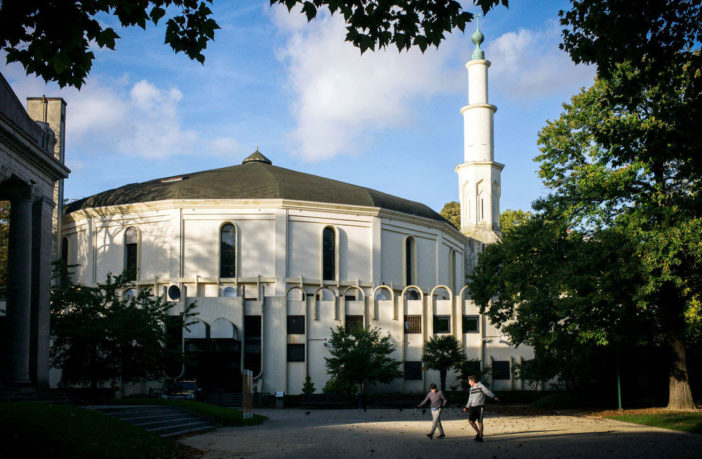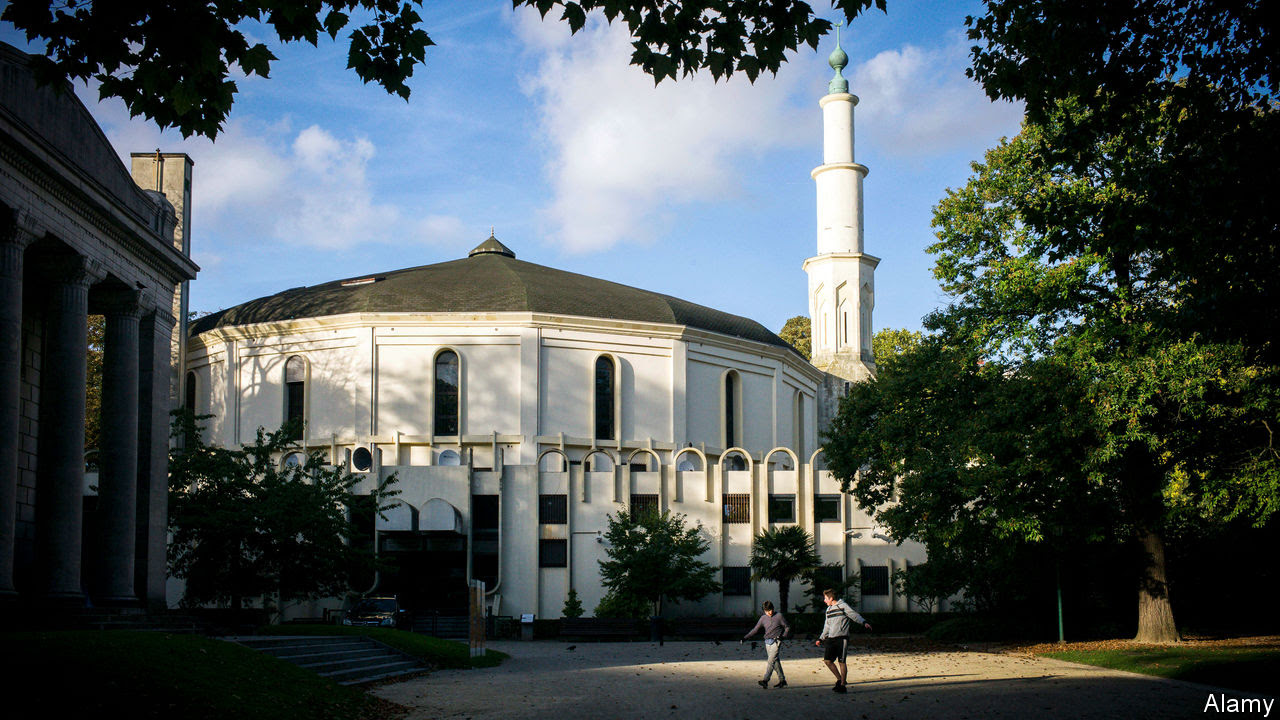ERASMUS | BRUSSELS
It wants to prevent radicalism, but is facing challenges from Muslim factions and Belgian society.
As Donald Trump stormed through Brussels this week, alternatively dishing out anti-European tirades and paeans of fawning praise, he had little time to mingle with the city’s residents or take in its cultural and architectural landscape. If the president had attempted any of that, he might have been quite confused.
The city, like Belgium as a whole, has long been split between French-speakers and Dutch-speaking Flemings. These days, a still more obvious social gap divides people of loosely Catholic heritage and the more introvert parts of a Muslim community which now accounts for a quarter of the city’s population, and could be in the majority by mid-century, on present trends. And within the Muslim cohort, there is rivalry between the two main elements, Moroccans and Turks. It is not uncommon, for example, for Belgo-Moroccans to marry Belgians of Christian background, but very rare for Moroccans to marry Turks.
To get a sense of how things are changing, consider the latest figures on the religious instruction which is selected by pupils at state-run elementary schools in Brussels (the choice presumably reflects their parents’ affiliation). Over the last seven years, the share opting for Catholic instruction has slipped from 23% to 16% while the proportion following Muslim lessons has climbed from 43% to 51%. In a trend which reflects migration from eastern Europe and the global South, those opting for non-Catholic forms of Christianity (Orthodox Christian or Protestant) also inched upwards, to a total of about 8%.
These figures exclude faith-based elementary schools, of which the great majority are Catholic. If those establishments are included, the share of youngsters in Brussels receiving education in Islam is just under 30% while the proportion being taught the Catholic faith is slightly below 50%. But there is a palpable sense that Catholicism is in long-term decline. The Catholic authorities have said that about 20 major churches in Brussels—about a fifth of the total—are redundant. Across Belgium only seven Catholic priests were ordained last year.
Belgium’s federal authorities have been intervening more actively in the country’s burgeoning Islamic scene, especially since the terrible bomb attacks of March 2016 which targeted the city’s airport and metro system. They want to encourage moderate and law-abiding tendencies and nip in the bud any signs of radicalism.
In March, following the recommendations of a parliamentary commission set up after the bomb attacks, the government formally terminated the arrangement under which a body with Saudi affiliations oversaw the city’s Great Mosque (pictured above). Responsibility for the Mosque, which is the city’s most prestigious place of Islamic worship and instruction, will be transferred to the Executif de Musulmans en Belgique (Executive of Muslims in Belgium, or EMB), a powerful but often dysfunctional organisation which has a broad remit to administer the affairs of Islam in the country. In particular, the EMB is supposed to certify mosques and help the government to channel the subsidies it offers to the practice and teaching of Islam, along with other religions.
In May an intelligence report leaked to the Belgian press gave some idea of why the oversight of the big mosque had been transferred. It said Arabic-language teaching materials had been discovered at the premises which could encourage anti-Semitism, homophobia and violent extremism. The EMB’s Moroccan-born president, Salah Echallaoui, immediately insisted that as the Mosque’s new administrator, his organisation would do a much better job of keeping extremist ideas at bay. No place of worship certified by his organisation would ever disseminate such ideas; nor would imams trained with the EMB’s help ever be exposed to such thinking; and the Executive would also make sure that Muslim prisoners were not exposed to extremist theology.
That sounds very well and good, but it remains to be seen how effectively the EMB can do that job. Within a couple of days of making those promises, Mr Echallaoui, a well-connected Moroccan, was replaced by an equally well-connected Turk, Mehmet Ustun. The general principle of rotating the leadership between Moroccans and Turks had been agreed, but there was much squabbling over the timing of the transfer. Rivalry between Moroccans and Turks has often paralysed the operation of the Executive, and it could do so again.
The situation is complicated even more by the fact that in Dutch-speaking Flanders, politicians of a nationalist hue are intensely suspicious of all forms of Muslim officialdom, local and foreign, even those who purport to be imposing a moderate line on the community. Last year, for example, the Flemish interior minister Liesbeth Homans withdrew certification from one mosque and rejected 20 federally backed requests for certification. She accused Turkey’s religious and political authorities of meddling inappropriately in the affairs of the Turkish community in Belgium. Faced with these blocking tactics, there is not much the Belgian federal government can do.
NextJean-Louis Tauran opposed the Gulf war and mended fences with Islam








